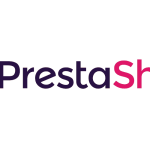Free Hosting vs Paid Hosting – If you’re looking to create a website, one of the most important decisions you’ll have to make is whether to use free hosting or paid hosting. Both options have their advantages and disadvantages, and it’s important to understand these before making a decision. In this article, we’ll explore the pros and cons of free and paid hosting, and help you determine which one is the right choice for your website.
Introduction
When it comes to creating a website, there are many factors to consider, but one of the most important is choosing the right hosting provider. Hosting is the service that allows your website to be accessible on the internet. There are two main types of hosting: free and paid. Free hosting providers offer their services at no cost, while paid hosting providers charge a fee for their services. Each type of hosting has its own pros and cons, and it’s important to choose the one that best fits your needs.
What is Free Hosting?
Free hosting is a service offered by some companies that allow you to host your website on their servers for free. This means that you don’t have to pay anything to use their services. Free hosting providers usually make money by displaying ads on your website or by placing their branding on your website.
Pros of Free Hosting
1. It’s Free
The biggest advantage of free hosting is that it’s, well, free! You don’t have to pay anything to use the service, which can be great if you’re on a tight budget.
2. No Technical Knowledge Required
Free hosting providers usually offer a simple and easy-to-use interface, which means that you don’t need any technical knowledge to set up your website.
3. Easy to Use
Free hosting providers usually offer a simple and easy-to-use interface, which means that you don’t need any technical knowledge to set up your website.
4. Good for Simple Websites
If you’re creating a simple website, such as a personal blog or a portfolio website, then free hosting might be a good option for you. Free hosting providers usually offer enough resources to handle these types of websites.
Cons of Free Hosting
1. Limited Features
Free hosting providers usually offer limited features and resources. This means that you might not be able to install certain plugins or software, and you might be limited in terms of storage and bandwidth.
2. Ads and Branding
Most free hosting providers make money by displaying ads on your website or by placing their branding on your website. This can be annoying for visitors and can make your website look unprofessional.
3. Poor Performance
Free hosting providers usually have slow servers and limited resources, which can lead to poor website performance. This can result in slow page load times, which can be frustrating for visitors.
4. Unreliable Uptime
Free hosting providers are known for having unreliable uptime. This means that your website might go down frequently, which can be frustrating for visitors and can harm your search engine rankings.
What is Paid Hosting?
Paid hosting is a service offered by companies that allow you to host your website on their servers for a fee. Paid hosting providers offer more features, resources, and customization options than free hosting providers.
Pros of Paid Hosting
1. More Features and Customization
Paid hosting providers usually offer more features and customization options than free hosting providers. This means that you can install more software, plugins, and themes to enhance your website’s functionality and appearance.
2. Better Performance
Paid hosting providers usually have faster servers and better resources, which means that your website will perform better and load faster. This can improve your visitor’s experience and your search engine rankings.
3. Reliable Uptime
Paid hosting providers are known for having reliable uptime. This means that your website will be up and running most of the time, which can improve your visitor’s experience and your search engine rankings.
4. Better Security
Paid hosting providers usually offer better security features, such as firewalls, malware scanning, and backup options. This can help protect your website from cyber-attacks and data loss.
Cons of Paid Hosting
1. Cost
The biggest disadvantage of paid hosting is that it comes with a cost. Depending on the provider and the plan you choose, paid hosting can be quite expensive.
2. Technical Knowledge Required
Paid hosting providers usually require some technical knowledge to set up and manage your website. This can be challenging for beginners who are not familiar with web development.
3. Complexity
Paid hosting providers usually offer more features and customization options than free hosting providers, which can make the interface more complex and overwhelming.
4. Overkill for Simple Websites
If you’re creating a simple website, such as a personal blog or a portfolio website, then paid hosting might be overkill. Paid hosting providers offer more features and resources than you might need for a simple website.
Which One Should You Choose?
The answer to this question depends on your specific needs and circumstances. Here are some guidelines to help you make a decision:
1. Simple Personal Website
If you’re creating a simple personal website, such as a blog or a portfolio website, then free hosting might be a good option for you. Free hosting providers offer enough resources to handle these types of websites, and you won’t have to pay anything.
2. Small Business Website
If you’re creating a small business website, such as an e-commerce store or a professional services website, then paid hosting might be a better option for you. Paid hosting providers offer more features, resources, and security options, which can help your website stand out and perform better.
3. High-Traffic Website
If you’re creating a high-traffic website, such as a news website or a social media platform, then paid hosting is definitely the way to go. High-traffic websites require more resources and better performance, which can only be achieved through paid hosting.
Conclusion
In conclusion, both free and paid hosting have their pros and cons, and it’s important to choose the one that best fits your needs. If you’re creating a simple personal website, then free hosting might be a good option for you. If you’re creating a small business website or a high-traffic website, then paid hosting is the way to go. Consider your budget, technical knowledge, website requirements, and future growth when making your decision.
FAQs
Q1. Is free hosting really free?
Yes, free hosting is free, but it usually comes with limited resources and features.
Q2. Can I switch from free hosting to paid hosting?
Yes, you can switch from free hosting to paid hosting at any time. Most hosting providers offer easy migration tools to help you transfer your website.
Q3. How much does paid hosting cost?
The cost of paid hosting varies depending on the provider and the plan you choose. Prices can range from a few dollars per month to hundreds of dollars per month.
Q4. Do I need technical knowledge to use paid hosting?
Paid hosting usually requires some technical knowledge to set up and manage your website. However, most hosting providers offer user-friendly interfaces and customer support to help you along the way.
Q5. Can paid hosting improve my website’s SEO?
Paid hosting can improve your website’s SEO by providing better performance, reliable uptime, and better security features. These factors can all contribute to higher search engine rankings.
Avail 50% Discount on our Shared BDIX Hosting Products
Promo Code – 50BDIX
Link: BDIX Shared Hosting
com Domain Registration | Buy a .com Domain Name Today
Search The Domain Name You Want com Domain Registration – The internet has become an
Best Ransomware Detection Techniques
22 May 2023What is Drupal used for?
22 May 2023Is PrestaShop a CMS or Framework?
22 May 2023







